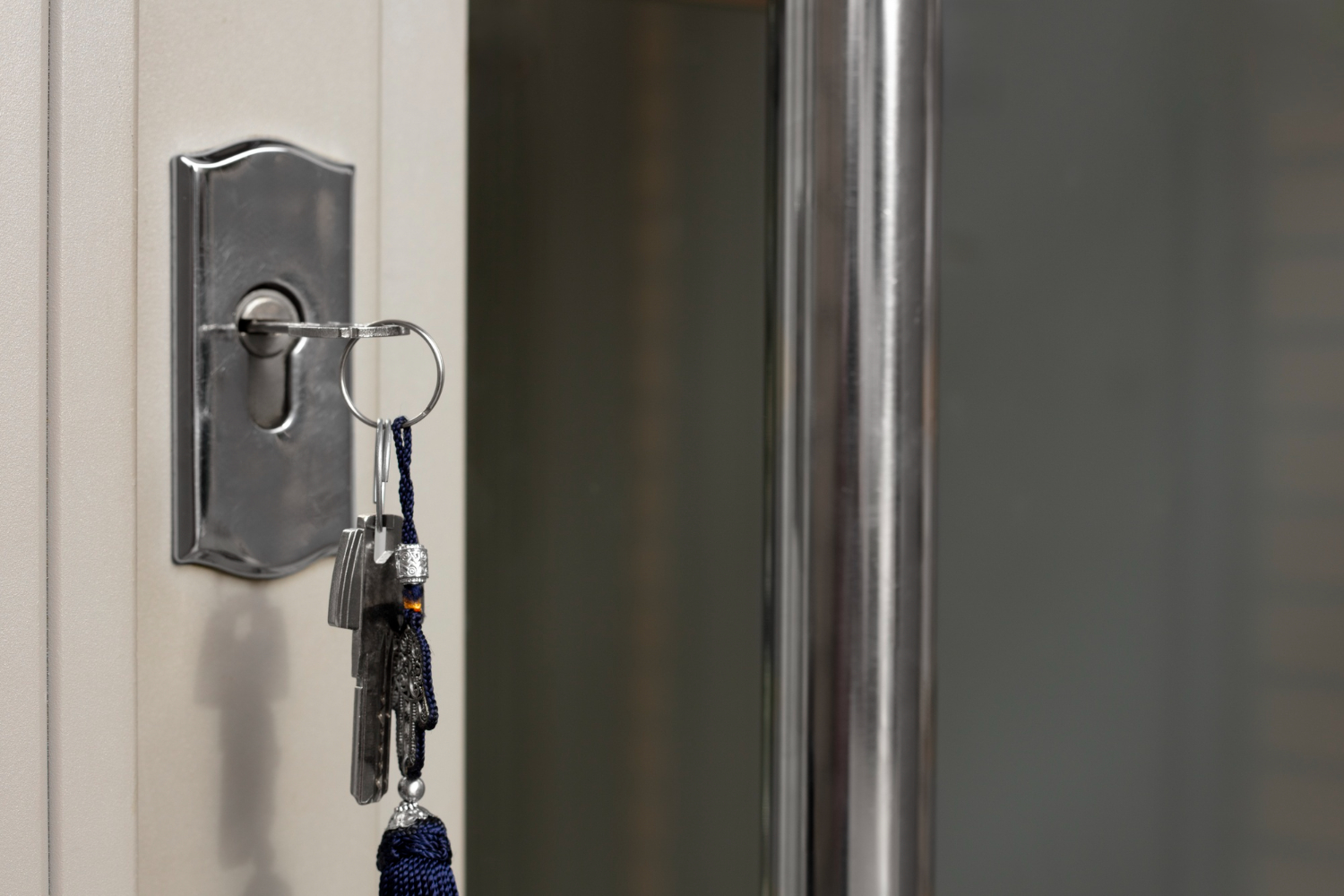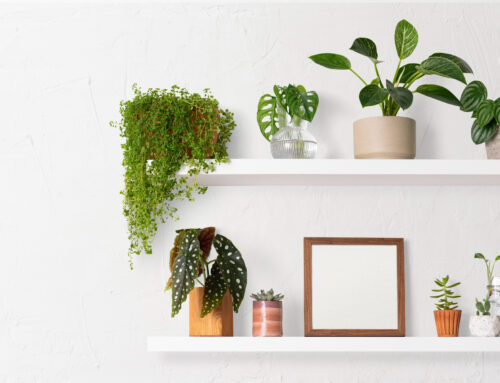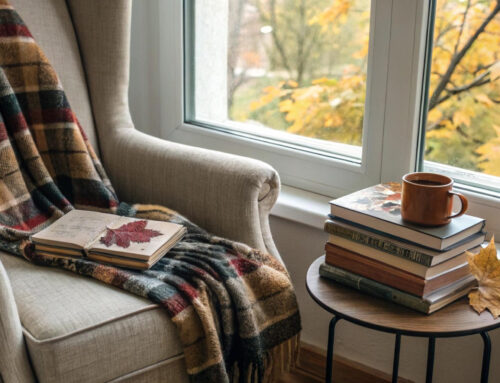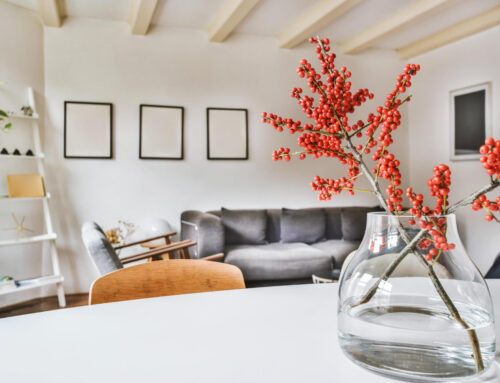Practical Tips to Help You Stay Safe, Secure, and Prepared in Your Apartment Home

Living in an apartment can be a wonderful experience, offering convenience and community. However, it also comes with its own set of safety challenges. From fire hazards to break-ins, renters often face risks that can be mitigated with the right knowledge and precautions. This guide aims to equip you with the essential information you need to keep yourself and your belongings safe in your apartment.
In this comprehensive overview, we will explore various aspects of apartment safety, including fire prevention, securing your home, and maintaining a safe living environment. By following these guidelines, you can significantly reduce the risks associated with apartment living. Whether you are a first-time renter or have lived in multiple apartments, this guide is a must-read for anyone looking to enhance their safety.
Understanding the importance of apartment safety is crucial. Not only does it protect your physical belongings, but it also contributes to your peace of mind. With the right strategies in place, you can create a secure living space that allows you to enjoy your home without unnecessary worry. Let’s dive into the essential tips and insights that every renter should know!
What Is Apartment Safety?
Apartment safety refers to the measures and practices that ensure the security and well-being of residents living in an apartment. This includes fire safety, theft prevention, and maintaining a healthy living environment. Understanding and implementing these safety measures can significantly reduce risks and enhance the quality of life for renters.
Understanding Fire Safety in Your Apartment
Fire safety is one of the most critical aspects of apartment living. With shared walls and common areas, the risk of fire can spread quickly if proper precautions are not taken. The first step in ensuring fire safety is to familiarize yourself with the fire escape routes in your building. Make sure to locate the nearest exits and understand the evacuation plan provided by your landlord.
Next, it’s essential to have working smoke detectors in your apartment. Test these devices monthly and replace the batteries at least once a year. If your apartment does not have smoke detectors, request that your landlord install them. Additionally, consider investing in a fire extinguisher, especially if you cook frequently. Place it in an accessible location, such as the kitchen, and ensure you know how to use it properly.
Another vital aspect of fire safety is being cautious with your electrical appliances. Avoid overloading outlets and use surge protectors for your electronics. Regularly inspect your cords for any signs of wear and tear, and replace damaged cords immediately. Furthermore, be mindful of flammable materials; keep them away from heat sources and never leave cooking unattended.
In case of a fire, having a plan can save lives. Practice a fire drill with your household, ensuring everyone knows how to exit the building safely. Keep important documents and valuables in a fireproof safe, and consider creating a digital backup of essential files. By taking these proactive steps, you can significantly enhance your fire safety preparedness.
- Familiarize yourself with fire escape routes and evacuation plans.
- Ensure smoke detectors are functional and installed.
- Use fire extinguishers and understand their operation.
- Be cautious with electrical appliances and flammable materials.
Securing Your Apartment Against Break-Ins
Securing your apartment is crucial to prevent theft and ensure your peace of mind. Start by assessing the security features of your building. Check if there are secure entry points, such as locked doors and intercom systems. If your building lacks adequate security measures, discuss your concerns with your landlord or property management.
Once you’ve evaluated your building’s security, focus on your apartment’s entry points. Invest in high-quality deadbolt locks for your doors, and consider adding a security bar or door brace for extra protection. For windows, ensure they are equipped with locks and consider installing window security film, which can make it harder for intruders to break in.
Another effective way to enhance security is by using smart home technology. Smart locks, security cameras, and motion-sensor lights can provide an extra layer of protection. Many of these devices can be monitored remotely through your smartphone, allowing you to keep an eye on your home even when you’re away. Additionally, consider joining or forming a neighborhood watch program to foster a sense of community vigilance.
It’s also essential to be mindful of your surroundings. Always lock your doors and windows when leaving your apartment, even if you’re just stepping out for a short time. Avoid sharing personal information with strangers, and be cautious about who you allow into your building. If you notice any suspicious activity, report it to your building management or local authorities immediately.
- Assess your building’s security features and address concerns.
- Install high-quality locks and consider additional security measures.
- Utilize smart home technology for enhanced security.
- Stay aware of your surroundings and report suspicious activity.
Maintaining a Safe Living Environment
Creating a safe living environment goes beyond fire safety and securing your apartment. Regular maintenance plays a cruci
al role in preventing accidents and ensuring your home remains a safe haven. Start by conducting routine inspections of your apartment. Look for any signs of water leaks, mold, or structural issues that could pose risks to your health and safety.
Pay particular attention to your kitchen and bathroom, as these areas are prone to hazards. Ensure that all appliances are in good working condition and that there are no loose wires or damaged cords. In the bathroom, install non-slip mats to prevent falls, and consider using grab bars in the shower or bathtub for added stability.
Another important aspect of maintaining a safe environment is ensuring proper ventilation. Poor air quality can lead to health issues, so make sure your apartment is well-ventilated. Open windows when weather permits, and use exhaust fans in the kitchen and bathroom to reduce humidity. If you notice any musty odors or signs of mold, address the issue promptly by contacting your landlord.
Additionally, be proactive about pest control. Keep your apartment clean and free of food debris, and seal any cracks or openings where pests could enter. If you encounter a pest problem, report it to your landlord immediately for professional treatment. Maintaining a clean and safe living environment not only protects your health but also enhances your overall well-being.
- Conduct routine inspections for leaks and structural issues.
- Ensure appliances are in good working condition.
- Maintain proper ventilation to improve air quality.
- Be proactive about pest control and cleanliness.
Expert Insights on Apartment Safety
To further enhance your understanding of apartment safety, we consulted with security expert Jane Doe, who emphasizes the importance of community awareness. “Building relationships with your neighbors can significantly improve safety,” she explains. “When residents look out for each other, it creates a sense of community that deters crime.”
Additionally, fire safety expert John Smith recommends regular fire drills. “Practicing your escape plan can make a sig
nificant difference in an emergency,” he states. “Familiarity with your surroundings and knowing the quickest exit routes can save lives.” Following these expert insights can help you create a safer living environment.
In a real-world case study, a tenant at Riverstone Apartments implemented many of the safety tips outlined in this guide. After securing their apartment with smart locks and conducting regular maintenance checks, they reported feeling significantly safer. When a minor fire broke out in the building, their preparedness allowed them to evacuate swiftly and alert others, showcasing the importance of being proactive about safety.
By incorporating expert advice and real-life examples into your safety strategy, you can create a comprehensive approach to apartment safety that not only protects you but also fosters a sense of community among your neighbors.
- Building relationships with neighbors enhances safety.
- Regular fire drills can save lives in emergencies.
- Real-world examples illustrate the importance of preparedness.
Have questions about apartment safety or want to share your experiences? Contact Riverstone Apartments today!
Apartment safety is an essential aspect of living in a rental space. By understanding fire safety, securing your home, and maintaining a safe environment, you can significantly reduce risks and enhance your quality of life. Remember to stay proactive, seek expert advice, and foster a sense of community with your neighbors. Your safety is worth the effort!
Enjoyed this guide? Subscribe to our blog for more tips on apartment living!
FAQs
Question: What should I do if my smoke detector goes off?
Answer: First, remain calm and check for any signs of smoke or fire. If there is no fire, you may need to reset the detector. If it continues to go off, replace the batteries or contact your landlord for assistance.
Question: How can I improve security in my apartment?
Answer: Consider installing high-quality deadbolts, using window locks, and investing in smart home security devices. Additionally, always lock your doors and windows when leaving your apartment.
Question: What should I include in my emergency kit?
Answer: Your emergency kit should include items such as a flashlight, batteries, a first aid kit, bottled water, non-perishable food, and important documents. Regularly check and update your kit as needed.
Question: How often should I conduct maintenance checks in my apartment?
Answer: It’s advisable to conduct maintenance checks at least once a month. Look for signs of leaks, mold, and any issues with appliances. Report any concerns to your landlord promptly.
Question: What are the signs of a potential fire hazard?
Answer: Signs of a potential fire hazard include frayed electrical cords, overloaded outlets, and the presence of flammable materials near heat sources. Address these issues immediately to prevent fires.
Question: How can I prevent pests in my apartment?
Answer: To prevent pests, keep your apartment clean, seal any cracks or openings, and store food in airtight containers. If y
ou notice pests, report the issue to your landlord for professional treatment.
Question: What should I do if I feel unsafe in my apartment building?
Answer: If you feel unsafe, speak to your landlord about your concerns. Consider enhancing your apartment’s security and getting to know your neighbors to foster a sense of community vigilance.
Question: Are there any resources for renters regarding safety?
Answer: Yes, many local government websites and housing authorities provide resources and guidelines for renters regarding safety. Additionally, organizations like the National Fire Protection Association offer valuable information on fire safety.
Question: How can I create a fire escape plan?
Answer: To create a fire escape plan, identify all exits in your apartment, designate a meeting point outside, and practice the plan with all household members. Regularly review and update the plan as needed.







